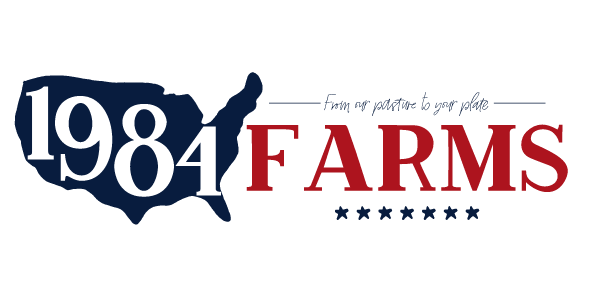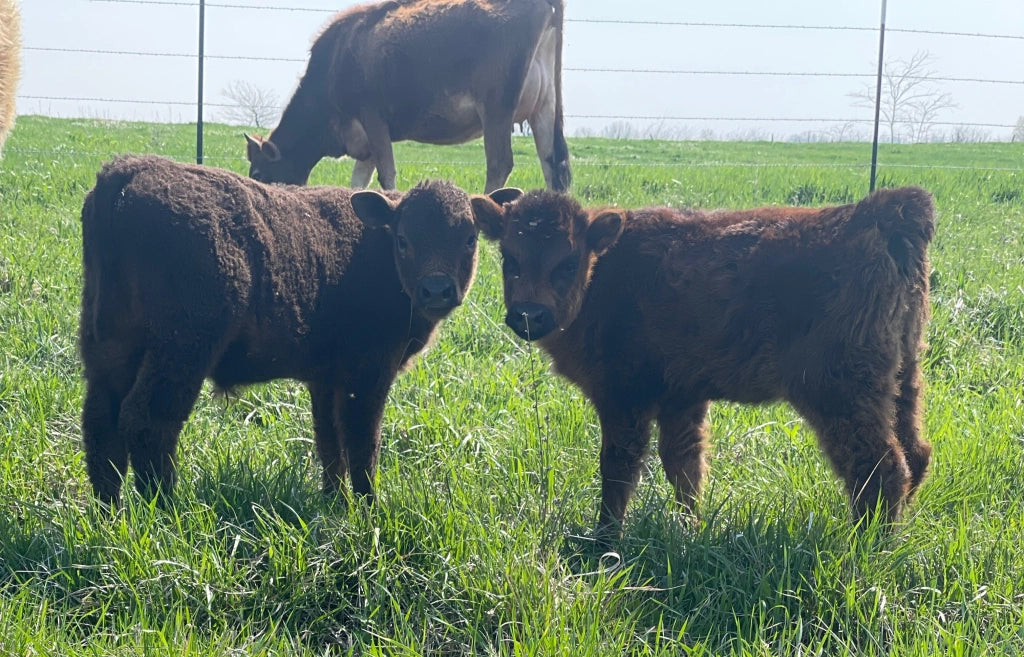If you could raise your own cattle for quality beef, would you?
I’m sure you would!
Until you’re able to do it yourself, we’re happy to do it for you.
There are many different ways to raise beef, different environments, and food sources. I thought about sharing some of those ways and how we do them differently, but I never want to come off as down-talking other ranchers.
I believe in promoting what you love, so let me tell you all about how we raise our cows, and why. (If you’re interested in how this compares to other practices, I encourage you to do your own research.)
We take good care and go to great lengths to ensure the health and quality of our beef.
Cows are herbivores and are not designed to effectively process grains (by-products of other animals) like they are grass and other plant material.
Each day, our cattle are moved (rotated) to a new pasture area with fresh grass waiting to be enjoyed. We move them to an area with enough forage for them to eat in a day (also known as a “cow day”.)

In the slow-growing season (the winter) we put them on larger pasture areas so they can still eat grass but won’t be as hard on the ground when it’s not growing. A few weeks a year they do get hay.
Every day we supplement with micronutrient minerals and Kelp. Kelp is packed with iodine and selenium, and other available nutrients.

Not only are our cattle being particularly fed and nourished, but they also feed and nourish the pasture. Each of our cattle produces between 50-70 lbs of manure a day, which remineralizes and produces better soil health.
We also rotate them each day so we don’t accumulate more than what the ground/nature can take care of. This is why our chickens follow the cows in their own daily rotation. They scratch and spread the manure and eat the bugs and fly larvae to keep that healthy balance so we don’t get an overgrowth of one pathogen or another.


We choose not to use chemical synthetic products on our cattle. We will if absolutely necessary, but we focus on natural sources to keep balance in the body. This is a holistic approach just as we do to keep a healthy balance for the earth. We are doing our best to mimic nature. We don’t use dewormers, and we don’t like to use antibiotics regularly or vaccinate. We do, however, add garlic to their supplement, which works like an internal dewormer, is antiviral, antimicrobial, antibiotic, and repels those pesky flies and other insects. There have been times when the need has risen for dewormer or antibiotics and we take care of the animal – that’s our job!
Did you know there are no nutrition gaps in beef? When I tell you that beef is packed with nutrients, I mean it. Beef contains every essential nutrient your body needs, like iron, zinc, selenium, riboflavin, niacin, vitamin B6, vitamin B12, phosphorus, pantothenate, magnesium, and potassium. (Again, I welcome you to do more of your own research on this.)

Did you know that pasture-fed-and-finished beef is higher in vitamin E, contains real vitamin A, heme iron (most absorbable iron from a food source), and vitamin K2 (which you can’t get from a plant source)… and all of these vitamins work synergistically!
I could go on and on about the nutritional facts of beef! (Maybe I’ll share more in a future blog post…)
We’ve done the research and learned from the experts, we’ve personally experienced the health benefits of pasture-fed beef, and later this spring, we’re making our pasture-raised-and-finished beef available to you!
We have worked hard to make our beef available outside of neighboring states, and will be shipping nationwide in June 2023!
We have limited amounts of our quality, nutrition-packed beef, so be the first to know when it’s available by joining our email list and subscribing to our Neighborhood Newsletter!

